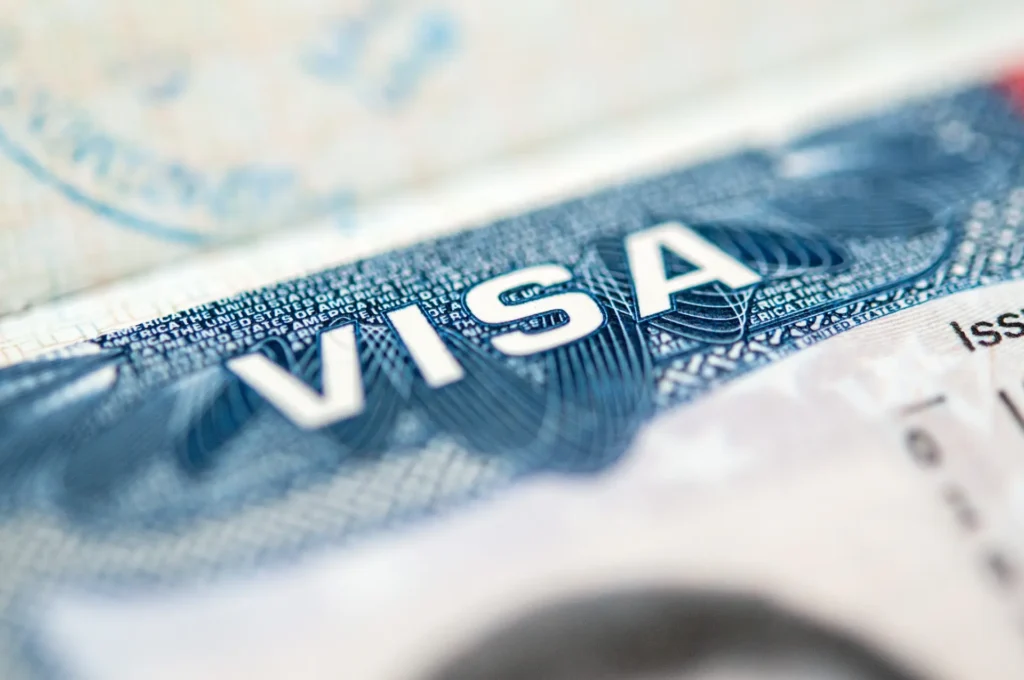Form I-914, Application for T Nonimmigrant Status, also known as T Visa requests immigration relief to victims of human trafficking, allowing them to remain in the United States if they have been subject to severe forms of trafficking and would suffer extreme hardship if removed. A critical part of this application process involves demonstrating the psychological effects of trafficking and the resulting mental health impacts. At Polaris Psychology, we specialize in providing detailed psychological evaluations to support T Visa applications. These evaluations help document the emotional, psychological, and mental health consequences of trafficking, strengthening your case for a T Visa.

What is a T Visa Psychological Evaluation?
A T Visa psychological evaluation provides crucial evidence of the mental health impacts experienced by victims of human trafficking. This evaluation documents the emotional, psychological, and trauma-related consequences of trafficking, helping to demonstrate the severe hardship and long-term effects on mental health. These evaluations are often used to support a T Visa application, highlighting the need for protection and recovery for trafficking survivors.
At Polaris Psychology, we have extensive experience in performing T Visa evaluations. Each assessment is thorough, compassionate, and tailored to the unique experiences of trafficking victims. The result is a detailed report that provides critical evidence of the emotional and psychological harm caused by trafficking, which can strengthen your T Visa application. For more information on the T Visa application process, visit the USCIS official page.

Who Should Consider a T Visa Psychological Evaluation?
Any individual filing a T Visa application as a victim of human trafficking should consider a psychological evaluation. This is especially important if your application involves documenting the emotional and psychological harm caused by trafficking. These evaluations are tailored to your specific circumstances and provide detailed, evidence-based reports that strengthen your application by illustrating the severe mental health impacts of trafficking.

Why Is a Psychological Evaluation Important for a T Visa Application?
The T Visa process requires applicants to demonstrate the severe mental and emotional harm caused by human trafficking. A psychological evaluation is a key component, as it provides evidence of the trauma, emotional distress, and psychological effects experienced by the applicant due to trafficking. This documentation is crucial for illustrating the hardships that justify the granting of a T Visa.
Here’s how our evaluations can help:
- Expert Documentation of Trauma: Victims of human trafficking often experience significant emotional and psychological trauma, including anxiety, depression, and PTSD. Our evaluation documents these mental health challenges and the long-term effects of trafficking, providing a thorough and credible assessment of the hardship endured.
- Support Your T Visa Application: A professional psychological evaluation lends credibility to your T Visa application by offering an objective, evidence-based assessment of the trauma and mental health effects caused by trafficking.
- Highlight Mental Health Needs: Conditions such as PTSD, depression, and anxiety that result from trafficking are thoroughly assessed and documented, helping to demonstrate the extreme hardships that justify the approval of your T Visa.
For more information on the T Visa process, visit the official USCIS page on T Nonimmigrant Status. It is also strongly recommended that you consult with an immigration attorney to ensure you have the appropriate legal guidance.
Why Choose Polaris Psychology for Your T Visa Psychological Evaluation?
Choosing the right provider for your T Visa psychological evaluation is essential. At Polaris Psychology, we offer:
Doctoral-Level Clinicians with Advanced Training
Our evaluations are conducted by doctoral-level clinicians with the highest level of training in forensic evaluation and extensive experience in psychological assessment.
Telehealth Availability in 44 States
We offer telehealth services to victims of human trafficking across 44 states, ensuring accessibility regardless of your location. We can conduct evaluations through secure video calls, providing convenience and support no matter where you are.
Extensive Experience with T Visa Evaluations
We have conducted numerous psychological evaluations for T Visa applicants, helping clients document the psychological impact of trafficking with sensitivity to the unique circumstances of each case.
Multilingual Capabilities
Our team works with interpreters to provide services in over 100 languages, ensuring that language barriers do not affect the evaluation process. We offer support to victims of human trafficking from diverse backgrounds.
By choosing Polaris Psychology, you are selecting a provider with unparalleled expertise, flexibility, and a commitment to understanding your unique story. We are here to support you through every step of the evaluation process, helping you build a strong foundation for your T Visa application.
What to Expect During Your T Visa Psychological Evaluation
At Polaris Psychology, we prioritize creating a compassionate and supportive environment where you can share your story as a survivor of human trafficking. Here’s what the evaluation process typically involves:
Intake Paperwork: To begin the process, you’ll complete the necessary paperwork, providing us with background information about your experiences, mental health, and any relevant trauma related to trafficking.
Initial Intake Session (1-2 Hours via Video Telehealth): During the first session, you will meet with one of our licensed clinical psychologists. We conduct an in-depth clinical interview to understand your mental health, your experiences of trafficking, and the emotional and psychological impacts it has had. We may also administer standardized tests or questionnaires to further assess your mental health.
Supplemental Clinical Interviews (As Needed, 0 to 2 Meetings via Video Telehealth): Depending on the complexity of your case, we may schedule additional meetings to gather more information or clarify specific issues.
Draft Report Delivery: Within three weeks of the final interview, we will deliver a draft of the evaluation report for your review. In more complex cases, this timeline may extend.
Report Finalization: After incorporating any necessary revisions, we finalize the report within 1 to 3 business days and send it to both you and your attorney.
Pricing and Payment
At Polaris Psychology, we accept all major credit cards, debit cards, and FSA/HSA accounts for payment.
-
Evaluation Fee $1,528
Due in full at the first intake session. We accept credit cards, debit cards, FSA/HSA, and, in some cases, cash or cashier's checks.
-
Expedited Evaluation + $508
Due in full at the first intake session. We accept credit cards, debit cards, FSA/HSA, and, in some cases, cash or cashier's checks.
-
Addenda $250/hour
Should you need an update to your initial report after it is finalized, we can provide this for an additional fee of $250 per hour.
Please contact us if you have any questions about payment options. We are committed to making the process as smooth and transparent as possible, so you can focus on your T Visa application.

Confidentiality and Communication
Your evaluation is confidential and protected by doctor-patient confidentiality. If you wish for us to communicate with your attorney, you will need to sign a release of information form. This will allow us to share your completed evaluation report with your attorney to support your T Visa application.
Frequently Asked Questions
We’ve compiled answers to some common questions about our T Visa psychological evaluations. If you need more information or have specific concerns, feel free to reach out to us directly.
Q: Why do I need a psychological evaluation for my I-914 T Visa application?
A: Form I-914 (T Visa) asks you to prove:
- You are—or were—a victim of a severe form of human trafficking
- You are physically present in the United States because of that trafficking
- You would suffer extreme hardship involving unusual and severe harm if removed from the U.S.
- (For adults) You have complied with reasonable requests from law-enforcement
A trauma-informed psychological evaluation documents the mental-health effects of the trafficking experience—such as PTSD, depression, anxiety, or dissociative symptoms—and explains how deportation or separation from support systems would worsen those conditions. Clear, professional evidence can help USCIS (and, when relevant, law-enforcement agencies) understand the full scope of harm you have endured.
Q: What happens during a T Visa psychological evaluation?
A: You will meet (virtually by confidential video call) with a licensed psychologist trained in working with survivors of interpersonal violence and trafficking. The process includes:
- Safety planning & informed consent to ensure you feel in control of what is shared
- Compassionate, in-depth interviews covering your trafficking history, current symptoms, medical needs, and support network
- Evidence-based assessment tools that measure trauma, depression, anxiety, and functional impairment
The final report links clinical findings to T Visa legal criteria—especially the extreme-hardship standard—and is written in clear language attorneys and adjudicators can readily use.
Q: How much does the psychological evaluation cost?
A: The evaluation fee is $1,528, due in full at the first intake session. If you need an expedited evaluation which needs to be completed within two weeks, an additional $508 fee applies, totaling $2,036.
Q: Do you accept insurance?
A: Most health-insurance plans classify immigration-related psychological evaluations as “non-covered services,” so coverage is rare. For that reason, Polaris Psychology operates on a private-pay basis for all immigration evaluations.
Q: Do you offer immigration evaluations where I am?
A: At Polaris Psychology our licensed psychologists are authorized to practice
Alabama, Arizona, Arkansas, Colorado, Connecticut, Delaware, District of Columbia, Florida, Georgia, Idaho, Illinois, Indiana, Kansas, Kentucky, Maine, Maryland, Minnesota, Missouri, Mississippi, Nebraska, Nevada, New Hampshire, New Jersey, North Carolina, North Dakota, Northern Mariana Islands, Ohio, Oklahoma, Pennsylvania, Rhode Island, South Carolina, South Dakota, Tennessee, Texas, Utah, Vermont, Virginia, Washington, West Virginia, Wisconsin, and Wyoming.
Q: Do I need to work with an immigration attorney?
A: T Visa petitions involve complex statutes, potential law-enforcement certifications, and strict documentary requirements. We strongly recommend legal representation. An experienced immigration lawyer can:
- Assemble the evidence that proves each legal element of a severe-trafficking claim
- Integrate our clinical report into a cohesive case strategy (and into any derivative applications for qualifying family members)
- Coordinate with law-enforcement or service providers while protecting your safety and confidentiality
Our evaluation details the humanitarian foundation of application, but it is not a substitute for legal advice, and our clinicians do not provide legal services.
If you need help finding qualified counsel, these resources are a good starting point:
Q: Is the psychological evaluation confidential?
A: Yes, your evaluation is completely confidential. All information you share is protected by the Health Insurance Portability and Accountability Act (HIPAA) and used solely to prepare your report. We release the report only to you (or your attorney) and only with your written consent.
Q: What if I don't speak English?
A: If English is not an option, we work with professional medical interpreters during the interview portion of the evaluation. This ensures that you can comfortably communicate in your native language. While the final evaluation report is provided in English, translators are available to assist with the interview.
We work with interpreters in 100+ languages, including: Amharic, Arabic, Assamese, Bengali, Chinese, Dari, Farsi, Gujarati, Hindi, Korean, Urdu, Hausa, Mandarin, Punjabi, Pashto, Tamil, Tagalog, Thai, Vietnamese, Spanish, Swahili, and many more.
Ready to Begin? Schedule Your Immigration Evaluation Consult Today.
The process of applying for a T Visa as a survivor of human trafficking can be incredibly challenging, both emotionally and psychologically. Simply use the calendar below to choose a time that works for you. Once booked, you’ll be set up for a direct consultation with one of our licensed psychologists.